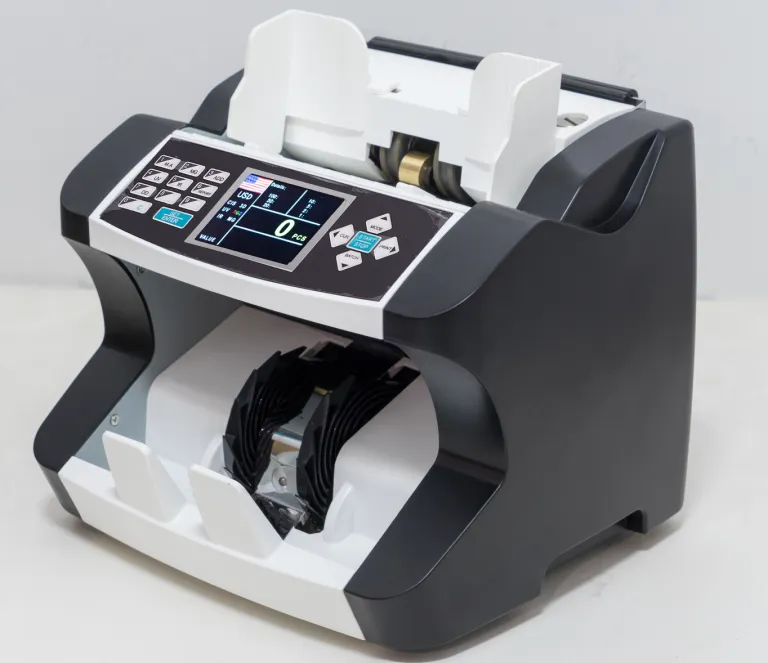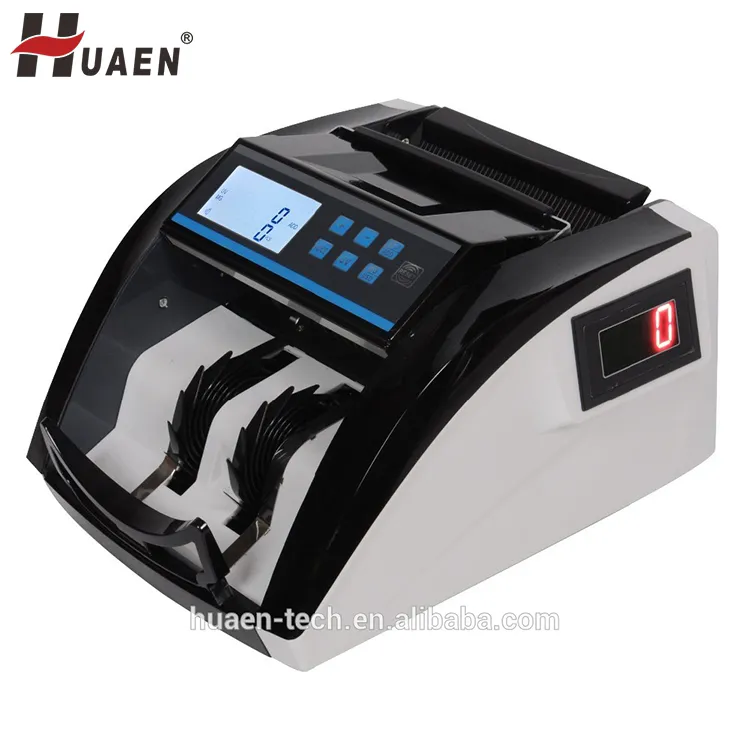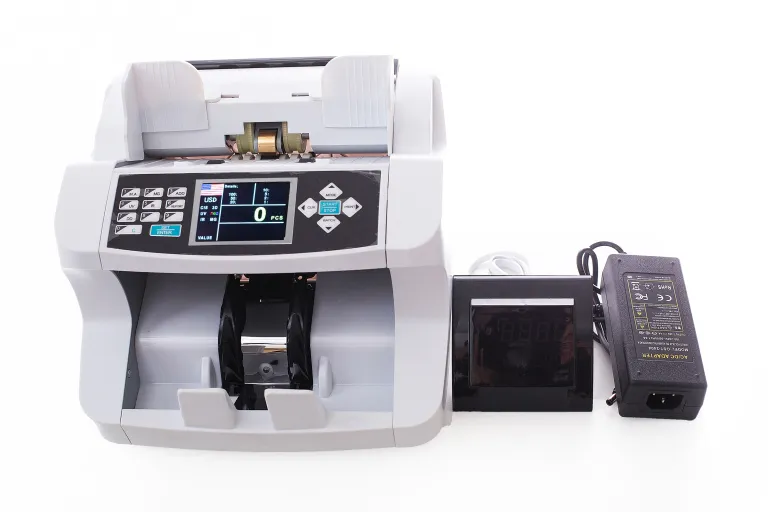Professional Money Detector Guide: Applications Of Counterfeit Currency Detector
Counterfeit currency is on the rise, posing significant risks to businesses and economies worldwide. Every day, sophisticated counterfeiters create fake money that can be challenging to spot with the naked eye. This growing concern affects everyone, from small business owners to large financial institutions. Counterfeit money can disrupt financial stability, lead to significant financial losses, and undermine trust in monetary systems. Understanding the scale of this issue and the importance of detecting counterfeit currency is the first step toward protecting your finances.
Professional money detectors are essential tools in the fight against counterfeit currency. These devices are designed to accurately and quickly identify fake money, ensuring that only legitimate currency circulates in the economy. Businesses, financial institutions, and even individuals can benefit from using these detectors.
They provide peace of mind, security, and a reliable way to verify the authenticity of currency. With the increasing sophistication of counterfeit methods, relying on professional money detectors has never been more critical.
How Counterfeit Currency Detectors Work
Counterfeit currency detectors utilize several detection methods to identify fake money accurately. Understanding these methods can help you choose the right detector for your needs:
Ultraviolet (UV) Detection
UV detection works by highlighting the security features embedded in genuine currency, such as special inks and threads that fluoresce under UV light. Counterfeit bills often lack these features or do not fluoresce correctly.

Magnetic Ink Detection
Genuine currency uses magnetic ink in certain areas. Detectors with magnetic ink detection can identify the presence of this ink, ensuring the bill's authenticity.
Infrared (IR) Detection
Infrared detection involves examining the bill's response to infrared light. Authentic currency has specific patterns that reflect or absorb IR light in ways that counterfeit bills cannot replicate.
Watermark and Micro-printing Detection
Watermarks and micro-printing are difficult to counterfeit. Detectors can magnify these features to verify their presence and authenticity, providing another layer of security.
Size and Thickness Detection
Some detectors measure the size and thickness of the bill, ensuring it matches the specifications of genuine currency. Counterfeit bills often have discrepancies in these physical characteristics.
Applications Of Counterfeit Currency Detectors
Counterfeit currency detectors are essential tools used across various industries to ensure the authenticity of cash transactions. From retail stores to financial institutions, these devices protect against the financial risks posed by counterfeit money.

In Retail and Business
Counterfeit currency detectors play a crucial role in maintaining financial integrity and operational efficiency in the retail and business sectors. Retailers, whether small boutiques or large chains, handle significant volumes of cash daily. The risk of accepting counterfeit money can lead to substantial financial losses and erode customer trust.
Why Retail Needs Counterfeit Detectors
Retail businesses are particularly vulnerable to counterfeit currency because they rely heavily on cash transactions. A single fake bill can disrupt the cash flow and inventory management, causing a ripple effect of financial discrepancies.
Implementing counterfeit currency detectors ensures that every bill passing through the register is genuine, thereby safeguarding the business's revenue and reputation.
In Financial Institutions
Banks, credit unions, and other financial institutions are prime targets for counterfeiters due to the large volumes of cash they handle. Ensuring the authenticity of every bill is critical to maintaining the trust and stability of the financial system.
Enhancing Security and Trust
Financial institutions use advanced counterfeit currency detectors to verify the authenticity of cash deposits, withdrawals, and interbank transactions. These detectors are integrated into various stages of cash handling, from teller counters to automated cash recycling machines. The use of these detectors minimizes the risk of counterfeit money entering the financial system, thereby protecting the institution and its customers.
Examples of Advanced Detection Technology
Many banks employ high-tech solutions, such as multi-currency detectors that can identify counterfeit bills from different countries. These advanced devices use a combination of UV, IR, and magnetic detection methods to ensure accuracy.
For instance, a major bank in New York implemented a new generation of detectors that significantly reduced the incidence of counterfeit bills, saving millions in potential losses and reinforcing customer confidence in the bank's services.
In Hospitality and Tourism
The hospitality and tourism industries often deal with diverse currencies and high volumes of cash transactions, making them susceptible to counterfeit money. Hotels, restaurants, and tourism-related businesses need reliable methods to verify the authenticity of the currency they receive.
Preventing Losses in Hospitality
For hotels and restaurants, accepting counterfeit currency can result in direct financial losses and complicate accounting processes. Counterfeit currency detectors help these businesses maintain financial accuracy and protect their profits. By using detectors, hospitality businesses can ensure that every cash payment is legitimate, reducing the risk of financial discrepancies.

In Public and Private Sector Organizations
Both public sector entities and private corporations handle high-value transactions that require stringent verification processes. The use of counterfeit currency detectors in these sectors ensures the authenticity of cash dealings and protects against financial fraud.
Government and Corporate Use
Government agencies, especially those involved in financial management and public services, use counterfeit detectors to verify the authenticity of currency in transactions and collections. This practice helps maintain the integrity of public funds and prevents financial mismanagement.
In the private sector, corporations dealing with large cash flows, such as casinos and real estate firms, employ counterfeit detectors to verify payments and deposits, ensuring that their financial operations are secure.
Examples of Organizational Implementation
A government office responsible for tax collections in California adopted counterfeit detectors to verify cash payments from citizens. This implementation improved the accuracy of collections and reduced instances of counterfeit money in public funds. In the corporate world, a real estate firm in Chicago uses advanced counterfeit detectors during property transactions to ensure that large cash payments are legitimate.
These examples illustrate how counterfeit currency detectors protect and enhance the operational integrity of organizations across various sectors.
Conclusion
In today's economy, the importance of detecting counterfeit currency cannot be overstated. Professional money detectors are invaluable tools that ensure financial security and integrity across various sectors. Whether you're a small business owner, a financial institution, or part of the hospitality industry, investing in a reliable counterfeit currency detector is a proactive step toward safeguarding your finances.
By understanding the different applications and benefits of these devices, you can make informed decisions that protect your revenue and enhance trust with your customers.
Counterfeit currency detectors provide more than just financial protection—they offer peace of mind. As you consider implementing these tools in your operations, remember that choosing the right detector, maintaining it properly, and staying updated on technological advancements are key to maximizing their benefits. With the right approach, you can confidently navigate the challenges of counterfeit currency and ensure the authenticity of every transaction.

Huaen PRODUCTS





